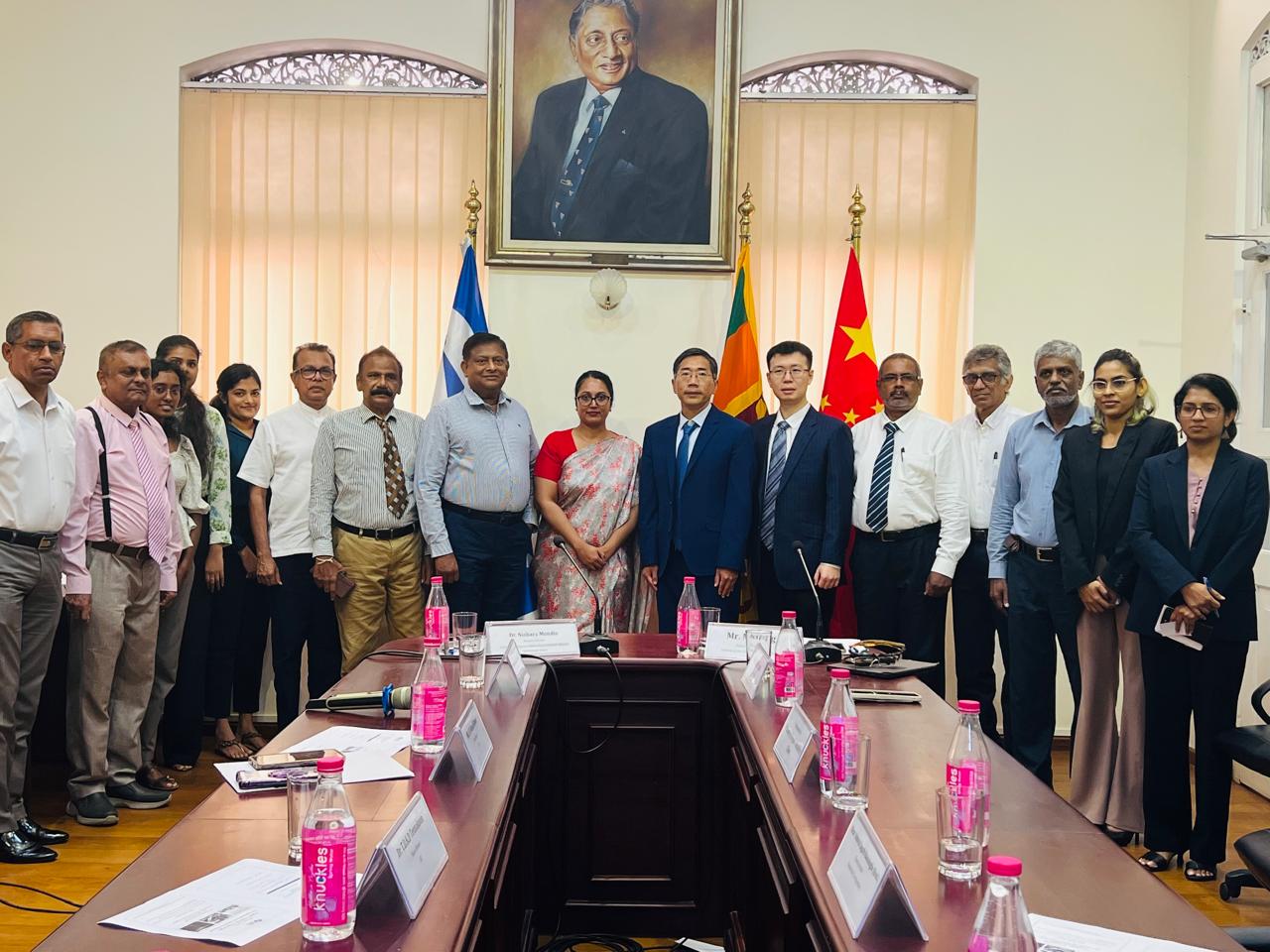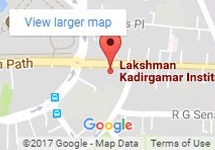
Reading Time: 2 min read
The Lakshman Kadirgamar Institute of International Relations and Strategic Studies (LKIIRSS) convened a Roundtable Discussion on ‘China’s 15th Five-Year Plan: New Opportunities for Shared Development’ on Wednesday, 12 November 2025, at the LKIIRSS Board Room. The session brought together representatives from the Embassy of the People’s Republic of China, Think Tank representatives and other invitees.
The roundtable addressed topics such as the relationship between China’s five-year plans and economic achievements, how China and Sri Lanka can share development opportunities, and the contribution of China’s governance model towards poverty alleviation and modernisation.
The session commenced with a speech by Mr Mei Jing, Political Counsellor at the Chinese Embassy. He highlighted China’s remarkable economic transformation driven by the Communist Party’s leadership and the continuity of its Five-Year Plans, which have guided steady modernisation and poverty reduction. He detailed the 15th Five-Year Plan’s goals of high-quality growth, technological self-reliance, green development, and strengthened national security. He stressed China’s commitment to global cooperation and mutual benefit, and noted strong synergies between China’s new plan and Sri Lanka’s development priorities, encouraging deeper collaboration in areas like digitalisation, Clean Sri Lanka, and rural development.
Following this, LKIIRSS researchers Ms. Madhuka Rukmalgama and Ms. Sulochana Wijayasinghe each delivered remarks of their own. Ms. Madhuka Rukmalgama shared insights from her recent delegation visit to Beijing and Chongqing, where she observed that China’s Five-Year Plans were not simply policy documents but living frameworks that shape practical outcomes across the country. Ms. Rukmalgama noted that the effective integration of artificial intelligence, robotics, and green technologies into local governance demonstrates how national priorities are translated into tangible results. She described how community centres, urban agricultural projects, and educational programmes in China reflect a model of development that is both people-centred and technology-driven.
Miss Wijayasinghe shared three key lessons from her multiple experiences in China: first, its pragmatic approach to development that values practical results over ideology; second, an adaptive model combining top-down direction with local innovation and experimentation; and third, the importance of effective governance, where the government works alongside the market to drive progress and reduce poverty.
The invitees in attendance then posed various relevant comments and questions. These included inquiries on the possibility of adopting Chinese Village development models to a Sri Lankan context, the need to enhance bilateral cooperation between China and Sri Lanka to build trade capacity, and how Sri Lanka could develop economically, whilst maintaining environmental sustainability. Moreover, the discussion touched on the importance of people-centred development and the need to start projects despite imperfections.
Participants at the roundtable discussion included: Mr. Amar Gunatilleke, Executive Director of the Marga Institute; Ms. Gayani Hurulle, Senior Research Manager of LIRNEasia; Mr. Dayaratna Silva, Executive Director of the Pathfinder Foundation; Ms. Bulani Weerawardene, Research Analyst of Verité Research; Dr. Charitha Herath, Chairman of Nexus Research; Mr. Omar Rajarathnam, Executive Director of Factum; Dr Lasantha Wickremesooriya, Executive Council Member of Sri Lanka China Business Council; Rear Admiral (Retd) Y.N. Jayarathna, LKI Board Member; Dr. T.D.K.D Tennakoon, LKI Board Member; Mr. S. H. Nimal Kumar, LKI Board Member.
The roundtable ultimately focused on enhancing the relationship between Sri Lanka and China, emphasising shared cultural and historical ties, and the potential for mutual development. The discussion concluded with plans for future collaborations and exchanges.
The Chinese Embassy’s write-up of the event can be found here.



